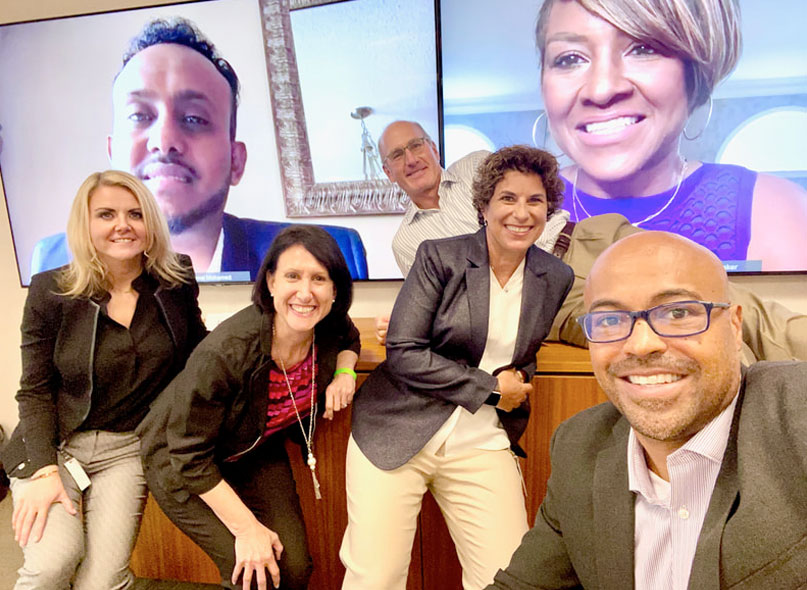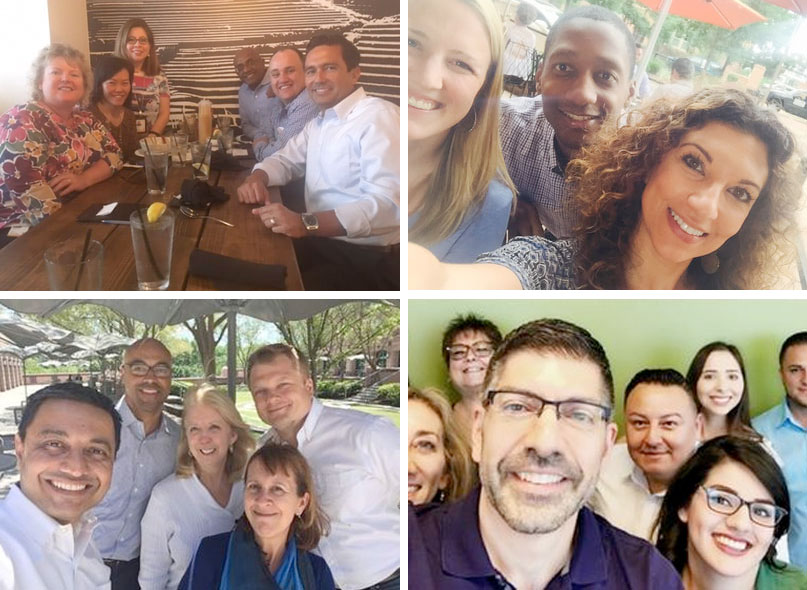AT&T continues to work toward its goal to get everyone talking, thinking and learning about digital access and inclusion. Demonstrating the importance of digital access, AT&T is keeping its May 20 observance of Global Accessibility Awareness Day (GAAD) online this year as the COVID-19 pandemic winds down.
Corey Anthony, Chief Diversity Officer, will kick things off in an address to AT&T employees worldwide. Suzanne Montgomery, Chief Accessibility Officer, will then lead a panel discussion on shifting the disabilities conversation out of the afterthought.
AT&T hosted several online DINE! sessions highlighting discussions on a variety of accessibility and disability topics in the week leading up to GAAD.
GAAD is observed on the third Thursday in May to promote digital accessibility and inclusion for people with all disabilities.
A Christian, a Muslim, a Jew and an Atheist walk into a coffee shop …
It sounds like the perfect set-up to a joke, right? But there’s no punchline here. Instead, this social media meme goes on to say: “And they talk and laugh and drink coffee and become very good friends. It’s not a joke. Honestly, it’s what happens when you’re not a jerk.”
It’s certainly no joke to Rachel Simon, vice president – Privacy, at AT&T. This meme – together with an impassioned speech by then AT&T CEO Randall Stephenson on race relations – spurred her to start something in 2017: DINE!. The acronym seems to bring that meme to life: Discover differences. Include one another. Navigate new perspectives. Eat! That’s just what Rachel did during a lunch date with five diverse colleagues - one gay, an African American, a Chinese immigrant, a Muslim and a Latina. Rachel is Jewish.
It’s a formula that’s been repeated hundreds, if not thousands, of times throughout AT&T. Rachel herself has hosted 64 sessions. The lunch and learn format promotes getting to know people from different backgrounds of all kinds from ethnicity and religion to sexual orientation and ability. Generally limited to small groups, the program is about building acceptance and understanding.
“We try to make everyone feel comfortable,” Rachel said. “Say what’s on your mind. Speak from your heart and speak your own truth.”
Hearing and seeing others’ perspectives is the most important thing. Learning about others’ backgrounds, life experiences and current situations can expand horizons, creating a more welcoming environment for everyone.
(Find some tips to invite others to DINE! and to help guide the conversation.)
“The experiences are amazing, awesome,” Rachel said. “I’m so grateful to everyone who has carried it forward. It wouldn’t be a success if people didn’t want to learn … and change.”
How do you get a program like this to work in a corporate environment? Rachel said one thing is key: leadership support.
“Randall Stephenson opened the door for us to talk about this and John Stankey completely picked up the torch,” Rachel said. “That’s the secret sauce. It’s been taken to other companies and fizzled out because it didn’t have that leadership support.”
Instead of curbing the program, the COVID-19 pandemic opened up DINE! in a new way – taking it online and global. “We had been able to only do DINE! with people in a geographic area, because you gather,” Rachel said. “Virtual though makes it even more effective. I was meeting with people in Mexico City, Atlanta, Bedminster (NJ) and El Segundo (Calif.). We’re widening the table so there’s room for everybody.”
Crystal Baker, accessibility solutions engineer at AT&T who organizes GAAD activities, said that since the observance falls at a time before most employees are back in the office, activities remained online for a second year. But, DINE! was added to the lineup with several sessions in the week before. Crystal got the idea after being asked to host a session a few months ago.
“Every DINE! session was full – without even widely advertising it,” Crystal said. “It created a lot of buzz.”
Sessions are purposely kept small to foster sharing and offer privacy. The standard 6 participants was raised to 15 online.
Rachel said that saying the wrong thing can make some hesitant to participate. “People are afraid of being misinterpreted or of being misunderstood. And that’s OK.” But, Rachel said, the benefits far outweigh the risks.
“My hope is that everyone will be open minded to participate and lean in to learn new points of view,” Rachel said. It’s an approach that certainly has worked for her.
“I’ve learned about other religions. I’ve seen a belief I’ve held in a different way. I’ve changed my mind on several issues – and it’s all because of a conversation. It humanizes it.”



